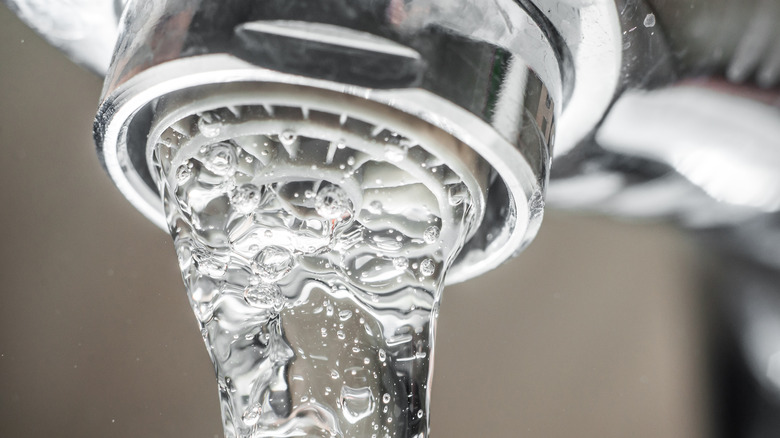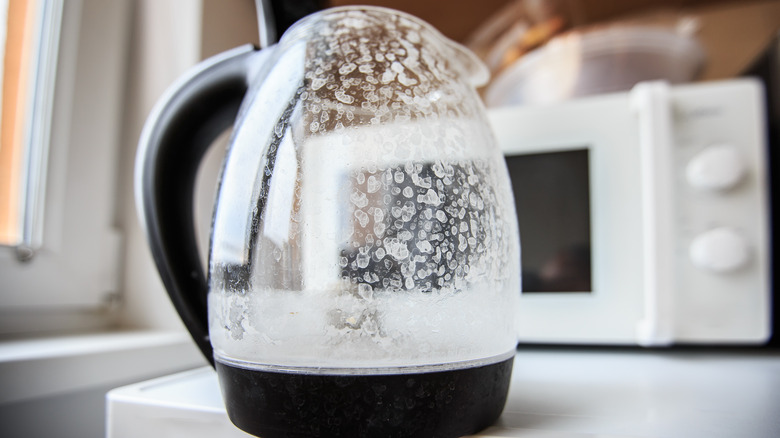Soft Water Versus Hard Water: Which One Is Better For You?
When you move to a new area one thing you may wonder about is the quality of the water. Is it hard water or is it soft? Water varies across the country, and can even vary by city within a state. But are there health benefits or risks associated with either hard or soft water?
First, let's define what makes water hard or soft. It all comes down to the levels of certain minerals in the water, specifically calcium, magnesium, and sodium, according to Healthline. Hard water has higher levels of calcium and magnesium, while soft water is low on those two minerals and high in sodium.
There are few tips-offs that will let you know what kind of water is running from your faucets. Soft water tends to have a very slight salty taste, though it may not be noticeable. Hard water leaves behind a white, filmy residue on glasses and dishes in the dishwasher, according to the USGS. And when you wash your hands in hard water, you may feel like there is a slimy film on your hands and have to rinse extra well.
Hard water may also have lower water pressure, as the minerals can build up in pipes over time and restrict water flow. Soft water produces lots of lather, but hard water requires more soap to get things clean.
This one protects against heart disease
There are no health risks associated with hard water but it can cause dryness of the skin and hair, according to Healthline. And people who have eczema may have particular trouble and need treatment.
The minerals in hard water can be beneficial and help you get the amounts recommended for daily consumption. Furthermore, in some large-scale studies, the minerals in hard water have been shown to help protect against cardiovascular disease, according to the International Journal of Preventative Medicine.
The high sodium content in soft water can be a concern for people who have high blood pressure. Otherwise, soft water is preferred for cleaning and it can save on your water bill, since you don't have to use more water to clean things twice or rinse longer to feel clean.
For people concerned about the sodium content of softened water, there are potassium-based water softening systems that could be an option. Of course, you can also opt to purchase bottled drinking water at the store and use the water from the faucet for cleaning.


